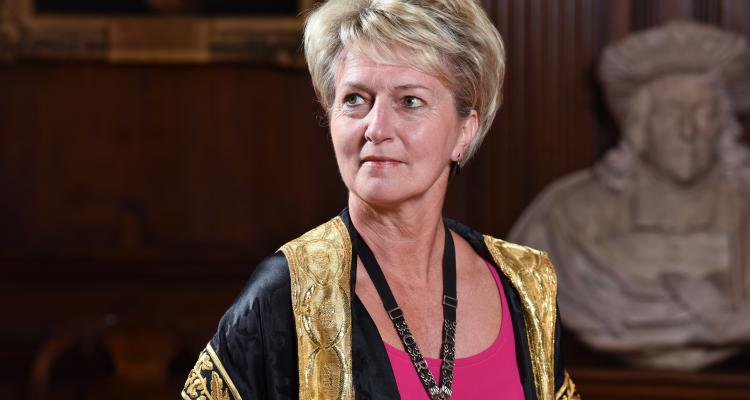Dr Sarah Clarke, who attended Girton College between 1984 and 1989, has been announced as the 122nd President of the Royal College of Physicians (RCP). When she takes up the role on 13 September 2022, Dr Clarke will be only the fourth woman to do so in the RCP’s 504-year history.
Dr Clarke was awarded a Bachelor of Arts, Master of Arts, Bachelor of Medicine/Bachelor of Surgery and, later, a Doctorate of Medicine. She has remained in Cambridgeshire since university, becoming a Consultant Interventional Cardiologist at Royal Papworth Hospital in 2002 and later also taking on senior roles as a Clinical Director for the Hospital Trust and, nationally, as a lead on the NHS’s Getting It Right First Time (GIRFT) programme for Cardiology. She is Deputy Chair of the British Heart Foundation and was previously the first female President of the British Cardiovascular Society. She is a Board Member of the European Society Cardiology and has received an International Service Award from the American College of Cardiology.
Before becoming the RCP’s new President, Dr Clarke held other roles with the RCP, which represents more than 40,000 members and Fellows – mainly hospital doctors - in the UK and internationally and works to improve health and healthcare. Most recently, she served a 3-year term as Clinical Vice-President.
Dr Clarke said: “I’ve always been proud to have attended a college that did so much to open higher education to women. My time at Girton was the perfect foundation upon which to pursue a career in an area of medicine largely dominated by male doctors and to take leadership roles in national and international organisations. It is a challenging time in medicine but I will work hard to promote it as a rewarding career to nurture our medical workforce of the future and improve healthcare delivery and outcomes."
Photograph credit: Jon Barlow

